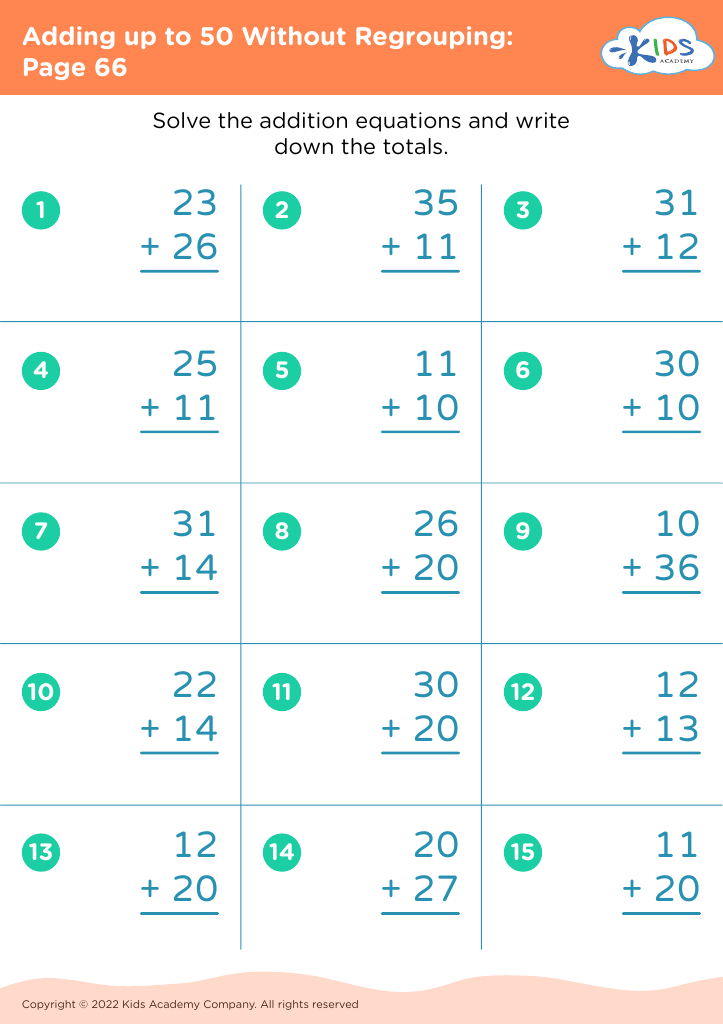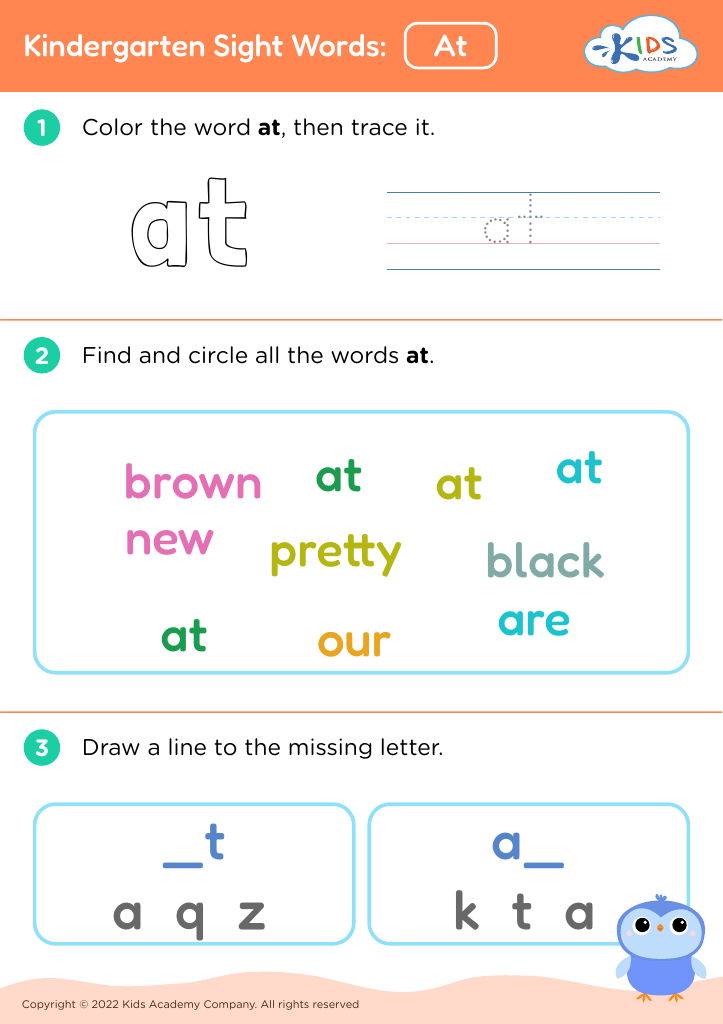Practice division Worksheets for Ages 4-8
4 filtered results
-
From - To
Discover engaging and educational division worksheets tailored specifically for children aged 4-8 at Kids Academy! Our expertly designed worksheets make learning division fun and accessible. Your young learners will develop essential math skills through colorful, interactive activities that promote hands-on learning. Each worksheet is crafted to encourage problem-solving and enhance number sense, providing a strong foundation for future math success. Whether at home or in the classroom, these division practice materials are perfect for reinforcing key concepts and building confidence in young mathematicians. Explore our downloadable worksheets today and watch your child gain essential skills while enjoying the journey of learning!
Practicing division with children aged 4-8 is crucial for several reasons. At this stage, children are developing foundational mathematical skills that serve as a basis for future learning. Introducing division early helps to build a strong understanding of the concept of sharing and grouping, which is fundamental in mathematics.
First, division reinforces the idea of equality and fairness, encouraging social skills as children learn to share objects equally among their peers. This practical application helps cement the concept in their minds. Moreover, developing division skills alongside addition and subtraction fosters a well-rounded numeric understanding, making it easier for them to grasp more complex operations later.
Further, engaging with division activities enhances critical thinking and problem-solving abilities. It encourages children to think about how numbers relate to one another, bolstering their cognitive development.
Support from parents and teachers in practicing division can make learning both enjoyable and effective, creating a positive attitude towards math from an early age. This foundation not only supports future academic success but also instills confidence, promoting a lifelong love for learning. Ultimately, investing time in practicing division at this early age sets the stage for future mathematical competence and skill mastery.





















